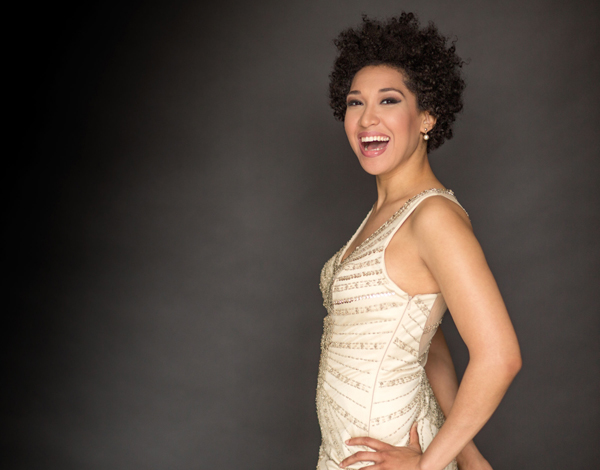A world premiere and intense Mendelssohn from Chamber Music Society

The title “Love Sonnets” was a bit of a stretch for the Chamber Music Society of Lincoln Center’s Wednesday night concert at the Harris Theater. Two of the works on the program were indeed written as presents for happy couples—Franck’s Violin Sonata (here performed in Jules Delsart’s transcription for cello) and Jonathan Berger’s Rime Sparse for soprano, violin, cello, and piano (commissioned by Laura and Ricardo Rosenkranz for their 25th wedding anniversary). But although the other two works on the program—by Ravel and Mendelssohn—had little connection to the subject matter, they made fitting bedfellows.
Part of the challenge of performing chamber music in the Harris Theater is how to maintain the music’s compact scale in such an expansive hall. In general, the performers’ solution was to up the scale: to invest the music with an immensity of sound, as if these chamber works were actually the grandest of concertos. And happily, their chosen repertoire responded well to this approach.
Cellist Daniel Müller-Schott and pianist Michael Brown’s performance of the Franck sonata built gradually to this grandeur. Müller-Schott responded to Brown’s eager accompaniment in the first movement with patient tenderness. But then, the flames began to roar. The second movement seethed with fervor. The recitative of the third movement was operatic in its scope.
The finale was a fine display of dramatic contrast. Müller-Schott and Brown understated the recurring canonic theme, almost declining to shape it. But they layered the theme’s appearances with episodes of uncommon vehemence.
The exception to the evening’s large scale was soprano Julia Bullock’s performance of Ravel’s Cinq melodies populaires grecques—winsome, featherweight settings of five folksongs. Bullock did very little text-painting. But her straightforward, unaffected performances suited the simplicity of the settings, and were the most intimate performances of the concert. And pianist and co-artistic director Wu Han supplied supple, rippling accompaniments.
Jonathan Berger’s Rime Sparse was heard in its world premiere. In the last of the seven Petrarch poems set in Berger’s work, the speaker asks “If it is not love what then is it that I feel? / But if it is love, by God, what kind of thing is it?” Given Berger’s settings of the poems, this second question felt particularly apt. Without the texts in hand, one would never guess that the subject matter was love, so unremittingly bleak was the music.
There were highlights of the set—such as “O scattered steps,” in which the poem’s many cries of “O” were twisted into melismas like the lonesome howls of a wolf. But lowlights too, as Berger served only storm clichés in his setting of “My ship passes.” Petrarch’s poems embrace both the bitterness and sweetness of unrequited love, but in Berger’s music one could scarcely taste any of the sweet.
Still, the performers gave the piece their all. Bullock navigated the treacherous vocal lines with unfailingly able seamanship. The accompaniments played by violinist Arnaud Sussmann, along with Müller-Schott and Wu Han, were no less demanding. The rapt concentration required by them to execute this music was palpable.
The concert closed with Mendelssohn’s Piano Trio No. 2 in C minor, performed by Sussmann, Müller-Schott, and Wu Han. There were issues one could quibble about: the very opening was stiff and lacking in mystery; and Müller-Schott’s cello lines sometimes got buried in the flurry of Wu Han’s left hand. But overall, this was the boldest, most ardent interpretation I’ve heard of this underrated masterpiece.
Too often, Mendelssohn’s music is treated like confectionary, rather than the red-meat Romanticism it is capable of being. The musicians were having none of this namby-pamby approach. Even the less stormy inner movements pulsed with intensity: the slow movement was noble, the scherzo steely.
From the weight of Sussmann and Müller-Schott’s tone and the burliness of Wu Han’s octaves, you might have thought that the finale was written by Brahms. And their coda was a pure adrenaline rush. But Mendelssohn’s music can reward such wildness, as their performance amply demonstrated.
The Chamber Music Society of Lincoln Center continues March 29th, with a program of French music. harristheaterchicago.org/tickets/2016-2017-season/cms4-french-virtuosi
Posted in Uncategorized


